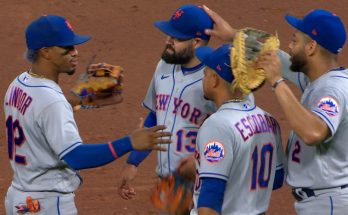The Nicknames of Mike Flanagan: “Cy Old,” “Cy Clone,” and “Cy Future”
In the early 1980s, as the Baltimore Orioles were transitioning between generations of pitching talent, Mike Flanagan, a left-handed pitcher for the team, coined a set of memorable nicknames for his fellow hurlers. These monikers, which carried the theme of the prestigious Cy Young Award, were a reflection of Flanagan’s wit and his perspective on his teammates’ careers. Flanagan’s nicknames for Jim Palmer (“Cy Old”), Storm Davis (“Cy Clone”), and Scott McGregor (“Cy Future”) provided a snapshot of the era’s pitching landscape and offered insight into Flanagan’s own perspective on the art of pitching.
Through these nicknames, Flanagan combined humor with insight into the changing dynamics of the Orioles’ pitching staff. Each nickname encapsulated something about the pitchers they referred to, from the established greatness of Palmer to the youthful promise of Davis and McGregor. To evaluate the accuracy of these nicknames, we must assess the careers of Palmer, Davis, and McGregor, examining whether they lived up to Flanagan’s playful—and often prescient—naming convention.
At the time Mike Flanagan dubbed Jim Palmer “Cy Old,” the future Hall of Famer was certainly well past his prime, though his remarkable career was far from over. Palmer was 36 years old in 1981, a time when most pitchers would be entering the twilight of their careers. Nevertheless, Palmer had already accomplished more than most pitchers could ever dream of. He had three Cy Young Awards to his name (1973, 1975, and 1976), and he was still one of the most respected pitchers in the American League. Palmer’s nickname, “Cy Old,” was Flanagan’s tongue-in-cheek way of recognizing Palmer’s age while still acknowledging his remarkable ability and legacy.
Jim Palmer’s career achievements were unparalleled for much of his era. He won 268 games over a 19-year career with the Baltimore Orioles. Palmer’s three Cy Young Awards were a testament to his dominance as a pitcher during the 1970s, a decade in which he was among the most successful and consistent pitchers in the league. He was known for his overpowering fastball, impeccable control, and ability to perform in clutch situations.
In terms of longevity, Palmer proved that age was just a number. Despite the toll of more than 3000 innings pitched and the wear and tear that came with pitching in the major leagues for nearly two decades, Palmer remained an effective pitcher into the early 1980s. Even in his later years, Palmer was able to deliver solid performances, making a comeback after an injury in 1980 to pitch for the Orioles in 1981. Palmer’s career was ultimately capped by his induction into the Baseball Hall of Fame in 1990.
Flanagan’s “Cy Old” moniker, while a playful jab at Palmer’s age, was still a recognition of his greatness. Palmer may have been getting older, but his pitching ability had not yet waned to the point where he could not still be a dominant force on the mound. The “Cy Old” nickname encapsulated the contradiction of Palmer’s later years: he was aging, yes, but still undeniably excellent.
When Flanagan gave Storm Davis the nickname “Cy Clone,” he was drawing a connection between the young Davis and the established great Jim Palmer. Davis, a tall right-handed pitcher with a solid fastball, entered the majors with high expectations in the early 1980s, and Flanagan saw similarities between him and Palmer in terms of style and potential.
Storm Davis made his MLB debut in 1982, joining the Orioles as one of the promising young pitchers in the organization. With a promising fastball and solid mechanics, Davis had the potential to become the next ace of the Orioles’ staff. In 1984, at just 23 years old, Davis had a breakout season, winning 19 games and posting a solid 3.38 ERA. He was a key part of the Orioles’ success that year, and there were whispers of him becoming a future Cy Young contender.
However, the “Cy Clone” nickname eventually proved somewhat ironic. While Davis had the physical talent and potential to follow in the footsteps of a pitcher like Jim Palmer, his career was inconsistent and ultimately fell short of expectations. After his successful 1984 season, Davis never again reached the same level of dominance. His performance dipped, and he struggled with consistency. In 1986, after being traded to the Oakland Athletics, Davis had a few solid seasons but was never able to replicate the success he had in his early years with the Orioles.
Davis’s career ultimately lacked the sustained excellence needed to earn a Cy Young Award or to be considered one of the great pitchers of his generation. Despite this, Flanagan’s comparison of Davis to Palmer was not entirely misplaced. At the time, Davis had the physical tools and a promising start to his career that made him a natural candidate for high expectations. Flanagan’s “Cy Clone” nickname was a reflection of the hope that Davis could replicate Palmer’s success, even if that hope was not ultimately realized.
Scott McGregor was another important piece of the Orioles’ pitching staff during the 1980s, and Flanagan’s nickname for him—”Cy Future”—reflected the potential McGregor had to be a future ace for the team. McGregor, a steady left-handed pitcher, had a solid career, but his trajectory was somewhat different from that of Palmer or Davis.
McGregor was known for his consistency and his ability to pitch in important games. He made his MLB debut in 1976, but it was in the early 1980s that he became a regular fixture in the Orioles’ rotation. McGregor’s best season came in 1983, when he posted a 3.18 ERA and won 18 games. His performance was key to the Orioles winning the American League East title that year, and he played a pivotal role in the team’s success during that period.
However, like Davis, McGregor was never able to fully reach the level of dominance that “Cy Future” suggested. While he was a dependable pitcher throughout much of his career, McGregor’s performance fluctuated, and he never had the breakout seasons that many had hoped for. His career was marked by solid but unspectacular years, with McGregor finishing his career with a 138-108 record and a 3.99 ERA.
Despite not achieving the kind of Cy Young-level dominance that Flanagan might have envisioned for him, McGregor remained an important part of the Orioles’ pitching staff for more than a decade. The “Cy Future” nickname, in retrospect, may have been more aspirational than prophetic. McGregor was certainly a solid pitcher, but he never fully emerged as the future ace of the Orioles that Flanagan might have hoped for.
Mike Flanagan’s nicknames for Jim Palmer, Storm Davis, and Scott McGregor were a playful reflection of his observations about the team’s pitching staff during the early 1980s. “Cy Old,” “Cy Clone,” and “Cy Future” were not just fun labels; they represented Flanagan’s view of the past, present, and future of the Orioles’ pitching staff. Palmer, despite his age, was still a legend; Davis, while promising, had yet to realize his full potential; and McGregor, though consistent, never quite reached the Cy Young-caliber heights that Flanagan envisioned for him.
In the end, the nicknames captured the hopes and expectations surrounding these pitchers, as well as the realities of their careers. Jim Palmer lived up to his “Cy Old” nickname by continuing to pitch at a high level despite aging, Storm Davis, the “Cy Clone,” never quite replicated Palmer’s success, and Scott McGregor’s “Cy Future” nickname hinted at potential greatness that was never fully realized.
Flanagan’s nicknames, while humorous, also serve as a reminder of the unpredictable nature of baseball careers and the fleeting moments of brilliance that can define a pitcher’s legacy. Through these nicknames, Flanagan immortalized the aspirations of the 1980s Orioles pitching staff, whether or not they fully lived up to the lofty expectations set for them.


